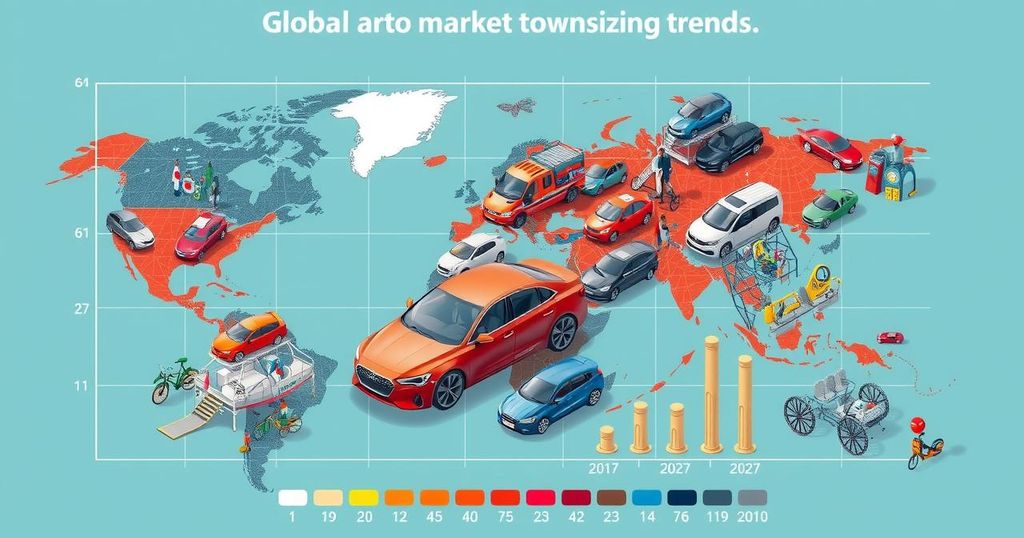General Motors’ Declining Fortunes in China’s Automotive Market
General Motors is facing severe challenges in China, with sales down by 19% and substantial losses from joint ventures. This shift comes as local manufacturers excel in the electric vehicle sector, leaving GM reassessing its operations while other Western automakers struggle in the increasingly competitive market.
In recent years, General Motors (GM) has experienced a significant decline in its operations in China, which was once a crucial market for the company. Previously, profitability in China supported GM during challenging times in North America and Europe. However, the current reality is starkly different; GM is now reporting record profits in North America while facing substantial losses in China. Sales in China have plummeted by 19% over the past nine months, resulting in a loss of $347 million from joint ventures. The company announced a reduction of over $5 billion in net income due to restructuring efforts necessitated by this downturn.
The landscape for Western automakers in China has changed dramatically. Local manufacturers have flooded the market with electric vehicles (EVs), which have quickly gained consumer favor over foreign brands, previously preferred by Chinese buyers. Thus, the shift towards electric vehicles has further marginalized American car manufacturers in China, leaving GM and others reassessing their future in the world’s largest automotive market.
GM’s CEO, Mary Barra, has acknowledged the harsh challenges facing Western brands in China’s automotive sector but remains optimistic about the company’s potential to succeed in the region. In contrast, industry experts express skepticism about this outlook. Michael Dunne, an automotive consultant, suggests that the golden era for GM in China has ended and argues that sustained profitability is unlikely moving forward.
General Motors was once reliant on the lucrative Chinese market for growth while grappling with challenges in other regions. However, as local competitors rapidly adopt electric vehicle technology, GM’s position has weakened significantly. The economic environment has shifted, with local brands now dominating the market, capturing approximately 70% of vehicle sales in China. This transformation owes much to Chinese government incentives favoring EVs and the decreased appeal of traditional gasoline-powered vehicles. As a result, several Western automakers, including GM, are now questioning their future in China amid shrinking market share and profitability concerns.
In conclusion, the competitive landscape in China’s automotive market has shifted dramatically against Western manufacturers such as General Motors. The transition to electric vehicles and changing consumer preferences has placed immense pressure on these brands, forcing them to reconsider their operations in China. Despite some optimism from GM’s leadership, industry experts are doubtful about the company’s ability to restore its former success in the region. Without a strategic shift, many Western automakers may face an impending exit from this vital market.
Original Source: www.cnn.com




Post Comment